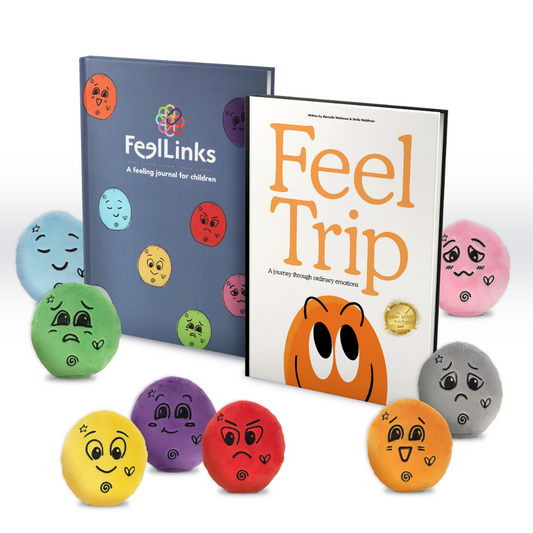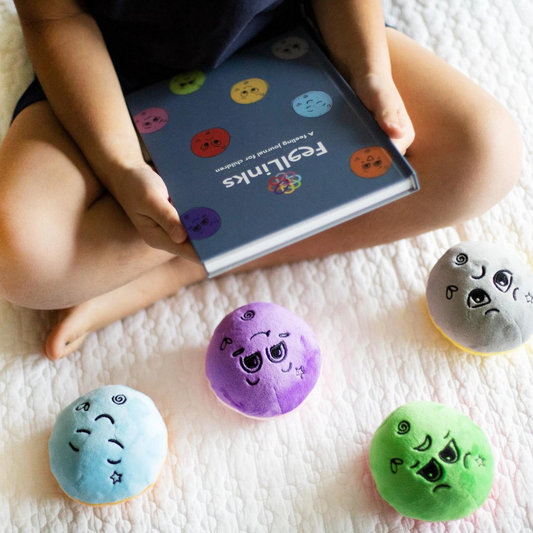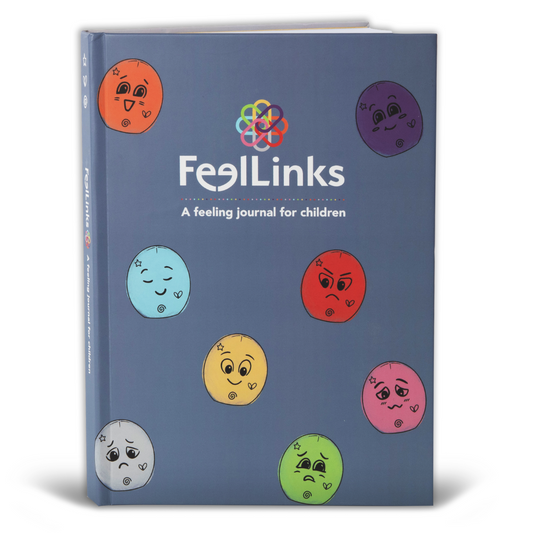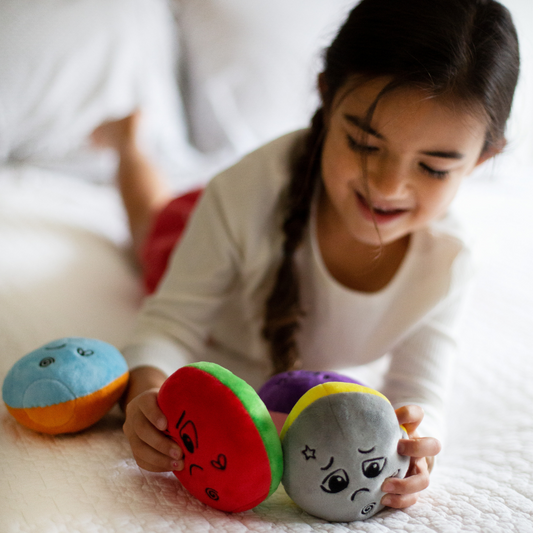FeelLinks: How our resources provide a unique avenue for learning
Share
As a mother of two (now 11 and 13 years-old), and a former kindergarten and preschool teacher, I felt something BIG was missing from the social emotional resources I was using in my classroom and what I had in my home for my own children - holding up feeling notecards, reading scenarios and acting them out, and of course those great naturally occurring teachable moments were all wonderful, but something BIG seemed to be missing.
I founded FeelLinks with the intention of creating hands-on resources to support children in their social emotional growth. FeelLinks is not a curriculum, but rather social emotional learning resources to supplement your classroom, home or healthcare center.
So how does hands-on learning support social-emotional skills?
Hands-on resources play a pivotal role in fostering social-emotional skills in children, providing a unique avenue for personal and interpersonal growth. Interactive materials engage children in a way that goes beyond academic knowledge, addressing the holistic development of a child's emotional intelligence.
Hands-on activities encourage self-awareness, one of the important aspects of emotional intelligence. Through tactile experiences, children learn to recognize and express their emotions, whether it's creating art, drawing/writing in their FeelLinks Journal, building structures, or engaging in sensory play (Now imagine your children or students playing with FeelLinks dolls and using expressive language with each of the emotions represented). This self-awareness lays the foundation for emotional intelligence, a crucial skill for navigating social relationships.
Hands-on resources promote empathy and understanding. Collaborative projects require children to consider the perspectives and feelings of their peers. Whether they're working on a group project or sharing materials, these experiences cultivate empathy, teaching children to appreciate diversity and navigate social interactions with sensitivity.
The tangible nature of hands-on learning also provides a safe space for children to manage their emotions. Artistic expression as they draw in their FeelLinks Journal, for example, can serve as a therapeutic outlet, allowing children to process and communicate their feelings. This emotional regulation is an essential skill that contributes to a positive and supportive environment at school, home or other child care center.
In addition, hands-on activities often involve teamwork and cooperation. Whether it's solving a problem together or completing a group project, children learn to communicate effectively, negotiate, and work towards a common goal. These collaborative experiences contribute to the development of strong interpersonal skills, preparing children for success in social settings.
Hands-on resources offer a rich environment for nurturing social-emotional skills in our children. By integrating tactile experiences into learning, educators and parents can help children develop self-awareness, empathy, emotional regulation, and effective interpersonal skills.
As we recognize the importance of emotional intelligence in personal and professional success, hands-on learning emerges as a valuable tool in shaping emotionally intelligent and socially adept individuals.
So what are you waiting for? Grab FeelLinks hands-on resources for a child today! Check out our best deal! Our Ultimate Feelings Bundle gets you all of our resources!
xo Marcelle





